Spandau is the westernmost of the 12 boroughs of Berlin, situated at the confluence of the Havel and Spree rivers and extending along the western bank of the Havel. The people of Spandau are very proud of their district and prefer to call themselves Spandauers rather than Berliners because Spandau was an independent city for many hundreds of years, with its roots dating back to the 13th century when it was founded as a medieval fortress. In 1920, Spandau was incorporated into Greater Berlin as a borough. By the way, the first thing that comes to my mind about Spandau is a prison where seven top Nazi leaders convicted in the Nuremberg trials were kept. This prison does not exist anymore, so this page of history is closed. I invite you to check out what Spandau offers by taking this self-guided walking tour in the morning or afternoon. Direct train service from Berlin airport makes visiting Spandau easy. Let’s start with the impressive Spandau Town Hall building visible right after exiting the train station.
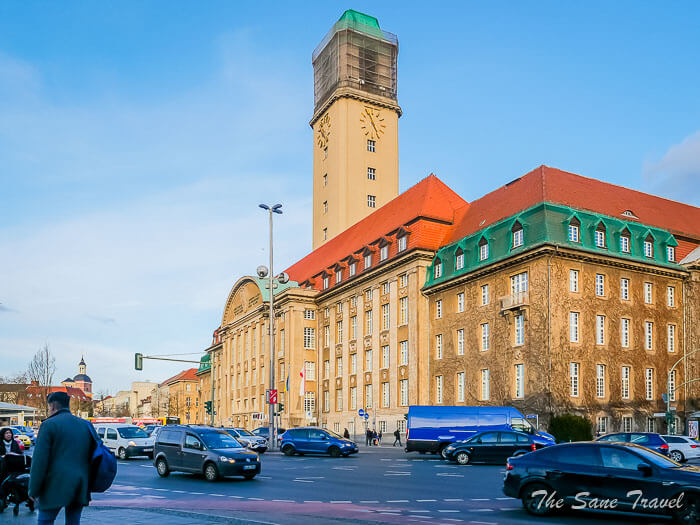
Spandau Town Hall
With its 80-metre tower, this imposing building is one of Spandau’s most famous landmarks. The Rathaus Spandau was completed in 1913. Until 1920, when Spandau was incorporated into Greater Berlin, it was the city hall of the independent city of Spandau. The first floor of the building holds various exhibitions available to visitors.
Then continue your way to the Gothic House where a tourist information centre is located to get practical information about the landmarks of Spandau.
Gothic House
This late Gothic building, erected in the second half of the 15th century, is one of the most important medieval monuments in the entire Berlin.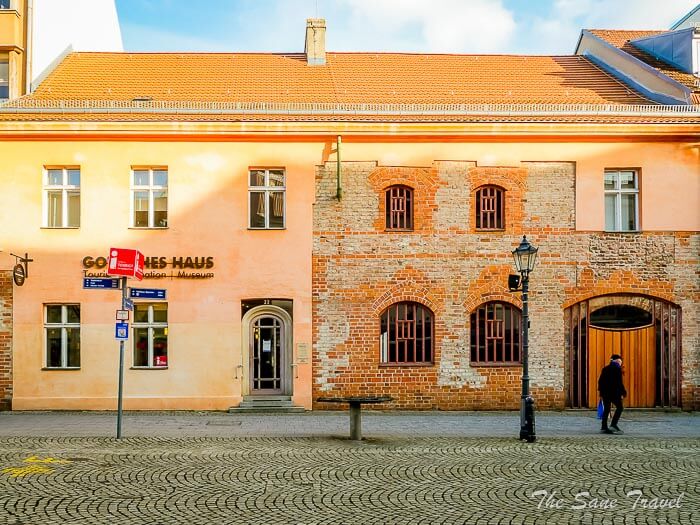 The well-preserved ribbed vaulted ceiling on the ground floor is the oldest part of the building. On the ground floor of the building is a tourist information centre and rooms for art and history exhibitions. The restoration of the house was completed in 1993.
The well-preserved ribbed vaulted ceiling on the ground floor is the oldest part of the building. On the ground floor of the building is a tourist information centre and rooms for art and history exhibitions. The restoration of the house was completed in 1993.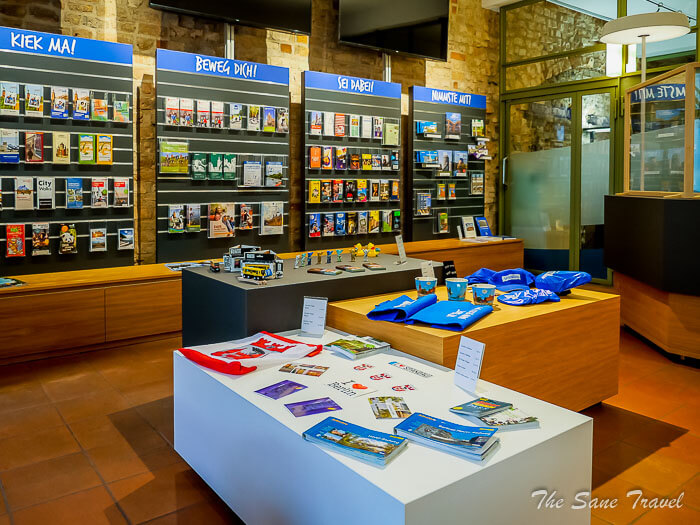 A branch of the Historical Museum of Spandau is housed on the upper floor. A tour of the thirteen rooms allows visitors to experience urban life over the course of the past several centuries.
A branch of the Historical Museum of Spandau is housed on the upper floor. A tour of the thirteen rooms allows visitors to experience urban life over the course of the past several centuries.
Then go to St. Nicholas' Church.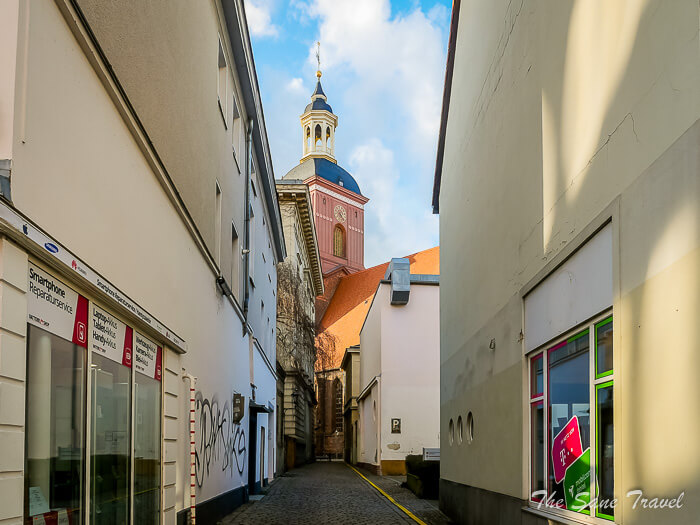
St. Nicholas' Church
St. Nicholas' Church on the Reformationsplatz was built in the 14th century. The importance of the church extends far beyond Spandau. In 1539, Elector Joachim II received communion in the form of bread and wine for the first time and converted to the Protestant faith, and from there, the Reformation spread to Brandenburg and Berlin.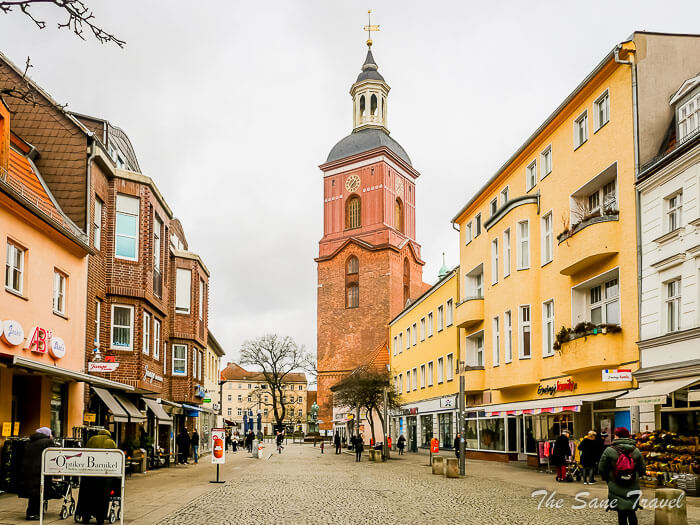
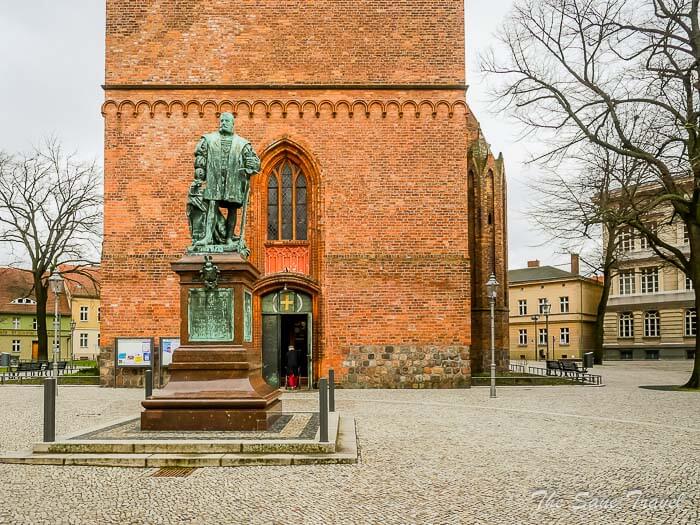 Nowadays, in addition to church services, St. Nicholas' Church hosts organ concerts.
Nowadays, in addition to church services, St. Nicholas' Church hosts organ concerts.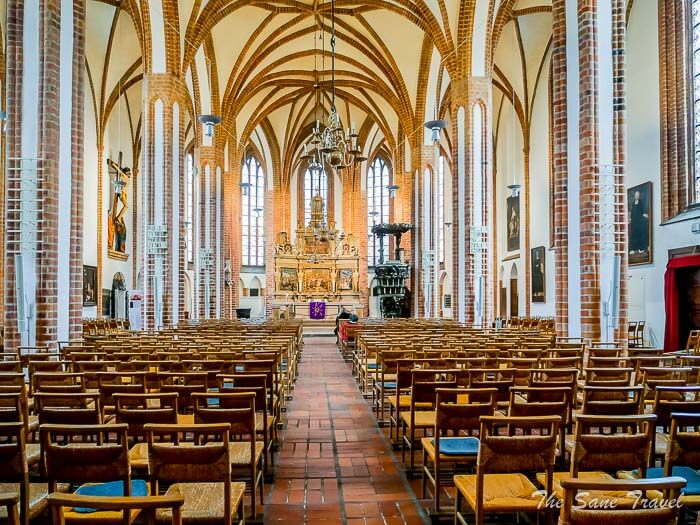
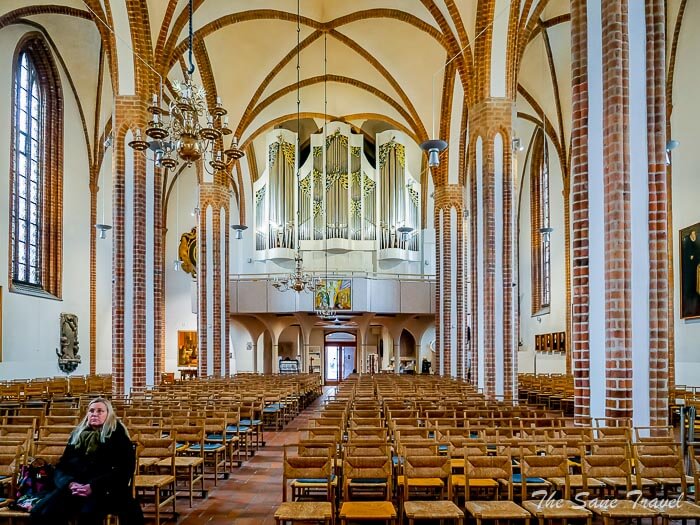
I hope you have already enjoyed walking through the old town.
Spandau’s Old Town
The lively old town is characterised by small shops, department stores, and restaurants. Stroll through the side streets and let yourself be enchanted by the historic buildings and old houses with colourful facades. The alleys and half-timbered houses in the old town possess small-town charm.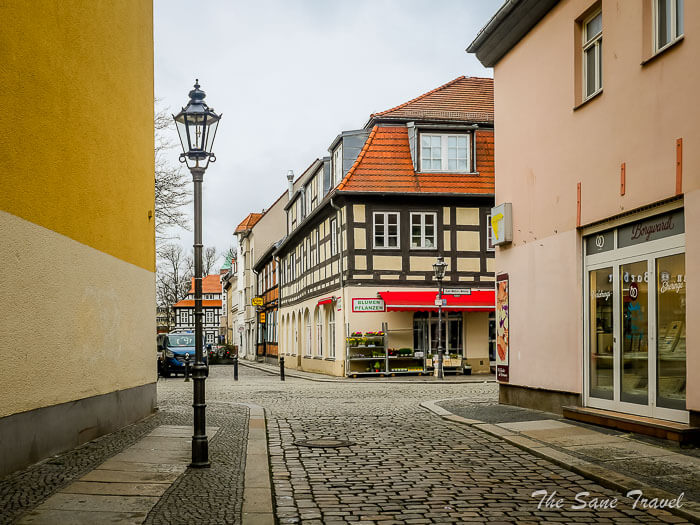
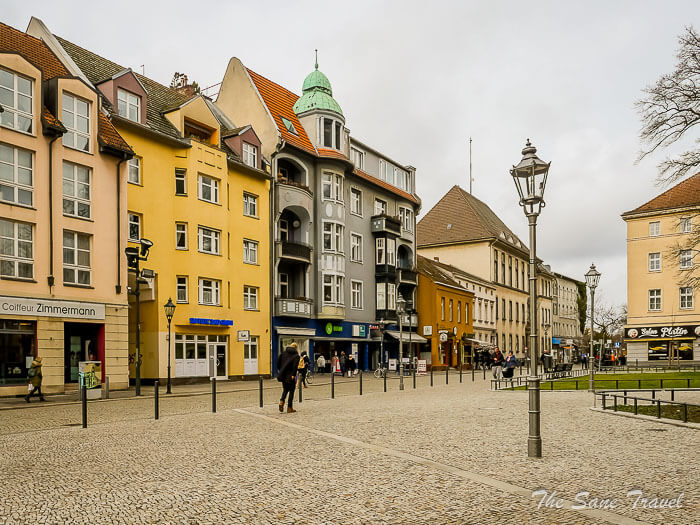
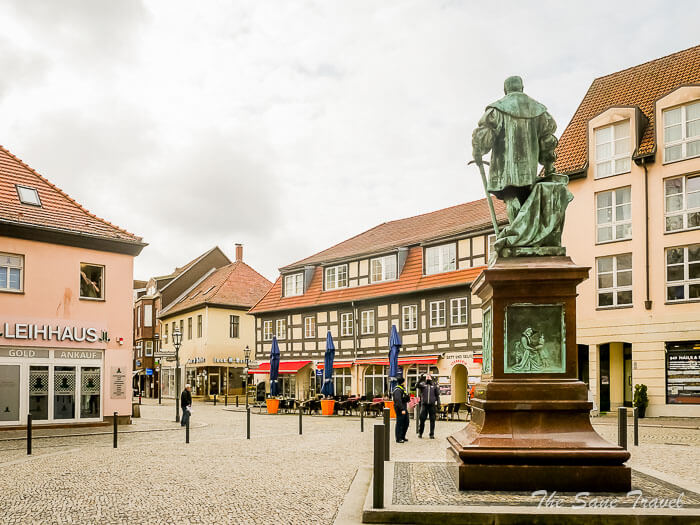
Then continue your way in the direction of the Spandau Citadel and take a look at St. Marien am Behnitz on your way.
St. Marien am Behnitz
St. Marien am Behnitz is the oldest Catholic Church in Spandau. It was consecrated in 1848. Restored in 2003 by private owners, it is a registered monument used mainly for musical and literary events.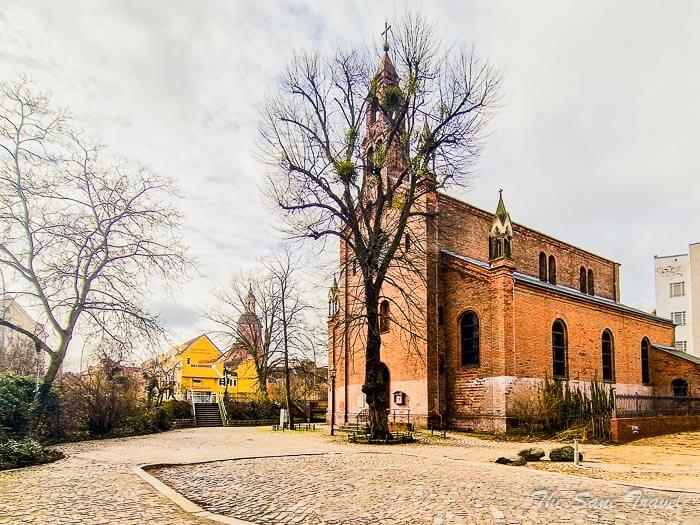
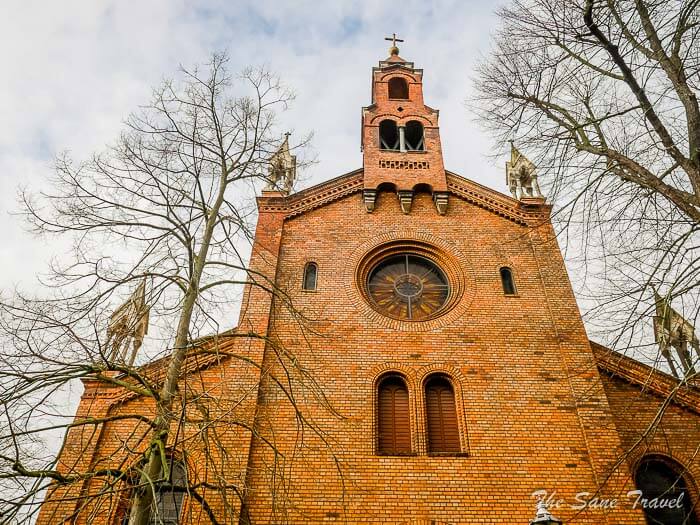 Then while crossing a bridge over the Havel River, look left to see the Spandau Lock.
Then while crossing a bridge over the Havel River, look left to see the Spandau Lock.
Spandau Lock
The lock is located between the old town and the citadel on the main waterway between the centre of Berlin and Szczecin. 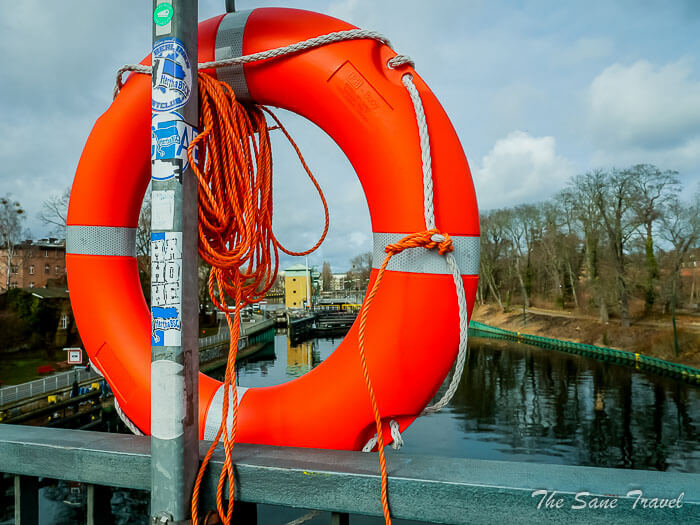
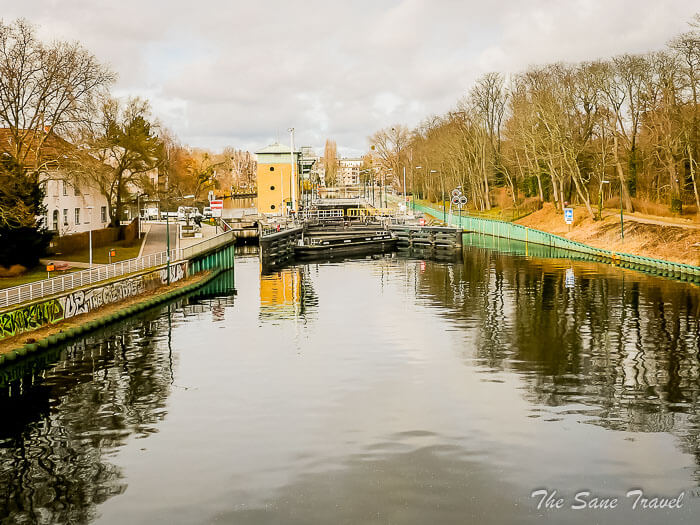 An impressive sight is when boats try to overcome the two-metre rise between the upper and lower Havel. It is busiest during the summer months when about 170 boats pass the 150-metre-long lock every day. So it might be interesting to take some time and watch boats go through the lock.
An impressive sight is when boats try to overcome the two-metre rise between the upper and lower Havel. It is busiest during the summer months when about 170 boats pass the 150-metre-long lock every day. So it might be interesting to take some time and watch boats go through the lock.
Just a few minutes after crossing the bridge, turn left to the main entrance of the Spandau Citadel.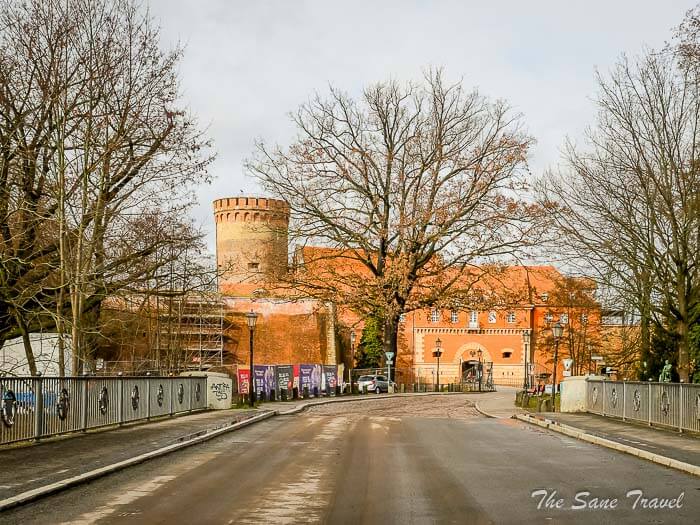
Spandau Citadel
The Spandau Citadel is one of the best-preserved Renaissance military structures in Europe. It stands on an area that was already fortified with a stone castle in the Middle Ages. Built in the late 16th century on an island near the meeting of the Havel and Spree rivers, the citadel was designed to protect the town of Spandau. It is a symmetrical complex with four bastions, surrounded by water. Today, the citadel is a cultural and historic island with a wide range of activities. In the summer, the citadel becomes an open-air concert stage that has hosted some music greats, including Stevie Wonder, Rammstein, the Beach Boys, and Lionel Richie.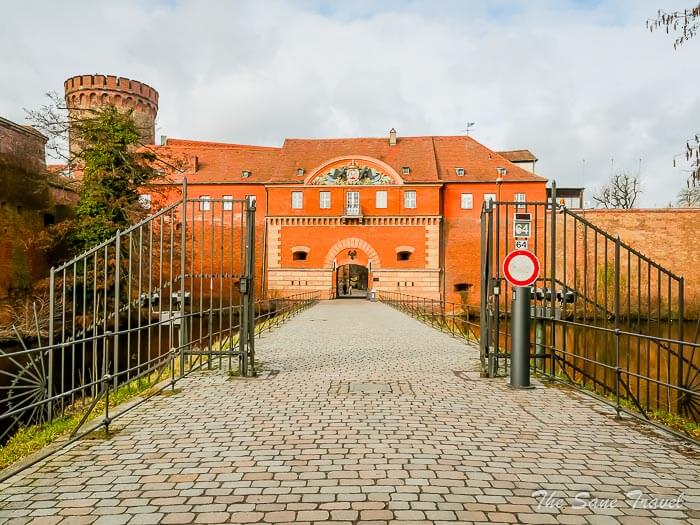
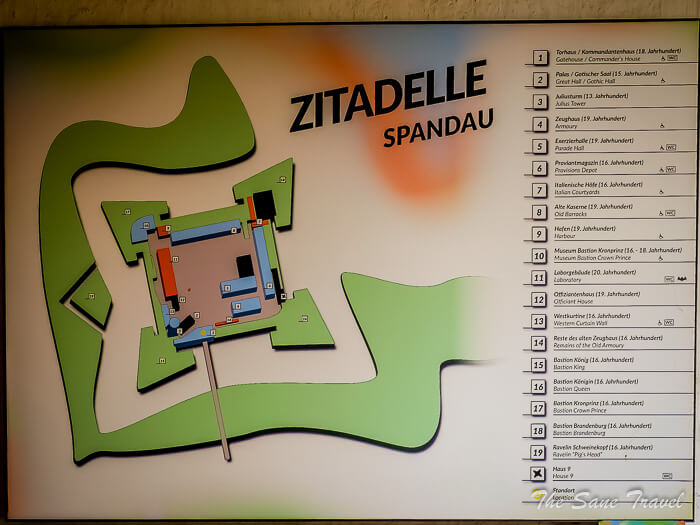
First of all, treat yourself to an impressive view by climbing the 13th-century fortified tower Juliusturm, the oldest building in Berlin.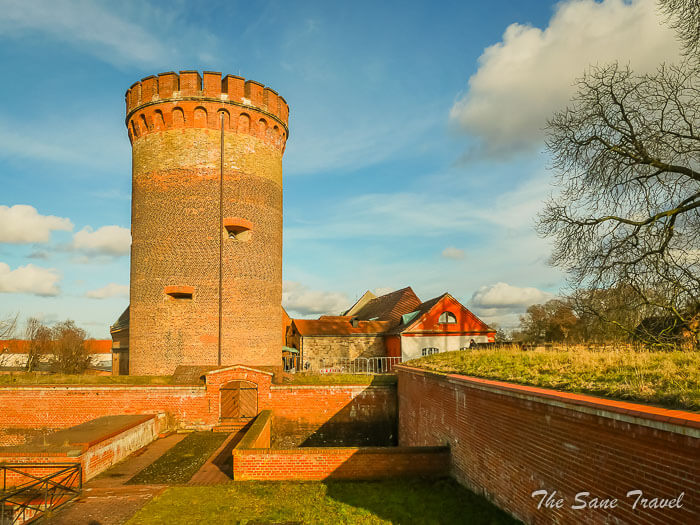 I hope you will be luckier than me because the tower was closed to visitors during my visit.
I hope you will be luckier than me because the tower was closed to visitors during my visit.
Allocate time to visit museums and exhibition halls inside the citadel premises.
Castle and Citadel history exhibition in Commander’s House
In the historical rooms of the Commander’s House, there is an exhibition outlining the history of the castle and the fortress. It is the ideal starting point for finding out more about the citadel. Models, maps, paintings and photographs, archaeological finds, dioramas, weapons, and everyday objects belonging to the soldiers bring to life the historical events which have taken place in the citadel. A significant part of the exhibition is devoted to the wildlife in the area.
Spandau City History Museum
The armoury of the citadel houses the Spandau City History Museum. More than 300 objects tell the story of the settlement and development of Spandau.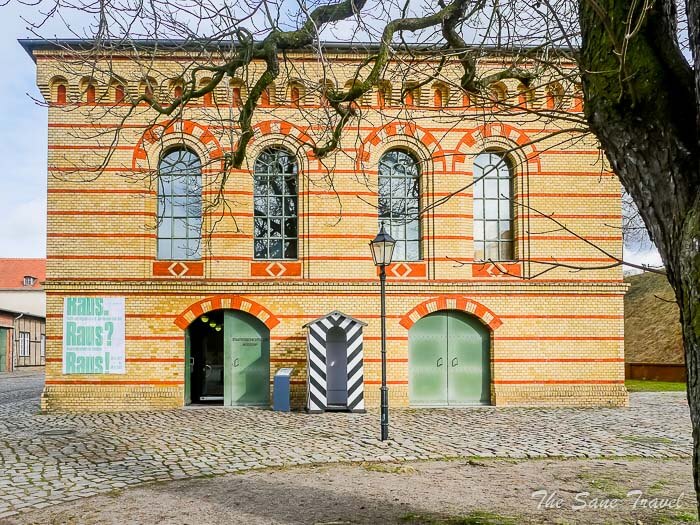 Among the exhibition's highlights are objects representative of the local industry in the 1920s, which include a Hudson Essex car and a collection of historical Siemens small electrical appliances.
Among the exhibition's highlights are objects representative of the local industry in the 1920s, which include a Hudson Essex car and a collection of historical Siemens small electrical appliances.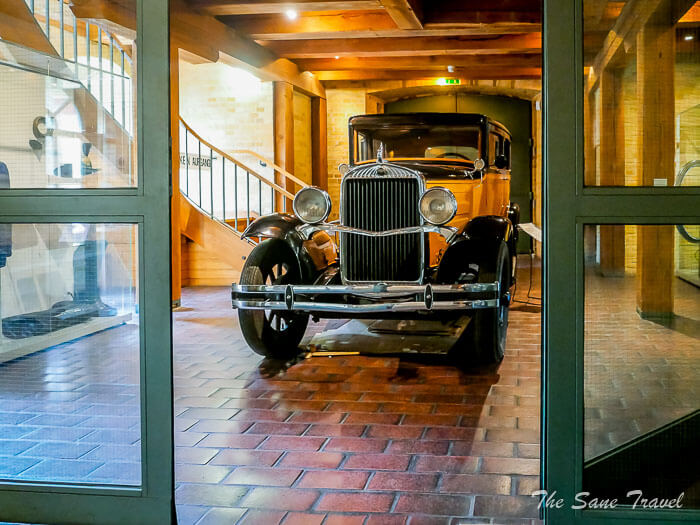
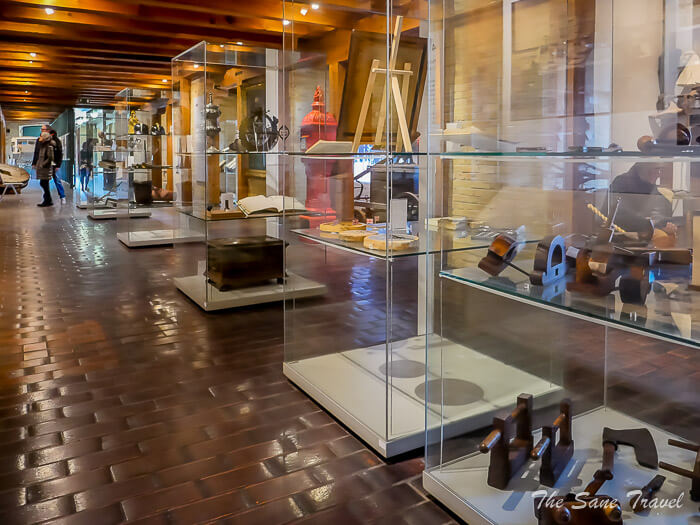
Unveiled. Berlin and its Monuments
Since 2016, the former provisions depot has hosted the permanent exhibition Unveiled. Berlin and its Monuments. This exhibition offers an opportunity to see the symbols of the German Empire, the Weimar Republic, National Socialism, and the GDR, which are testimonies to German history. The political monuments brought from all over Berlin were once part of the urban landscape. Due to the political upheavals in the 20th century, monuments were removed from public spaces by the new governments. Now they have found their place in this intriguing exhibition.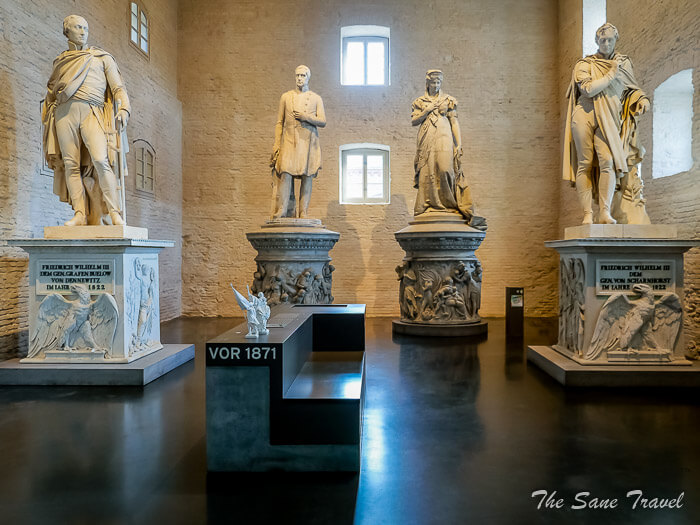
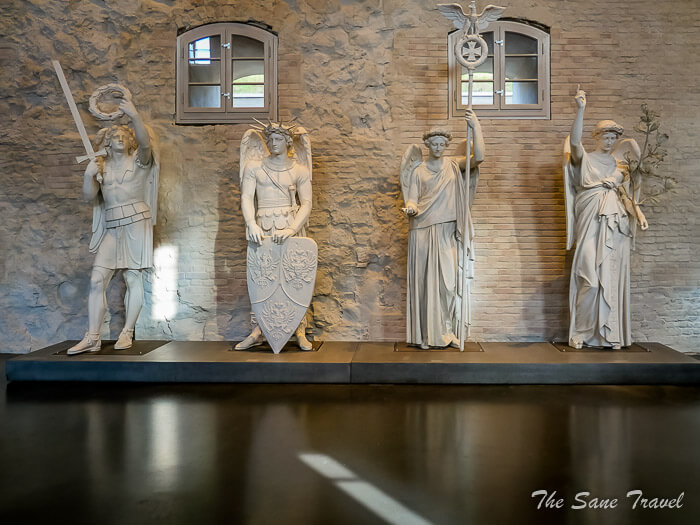
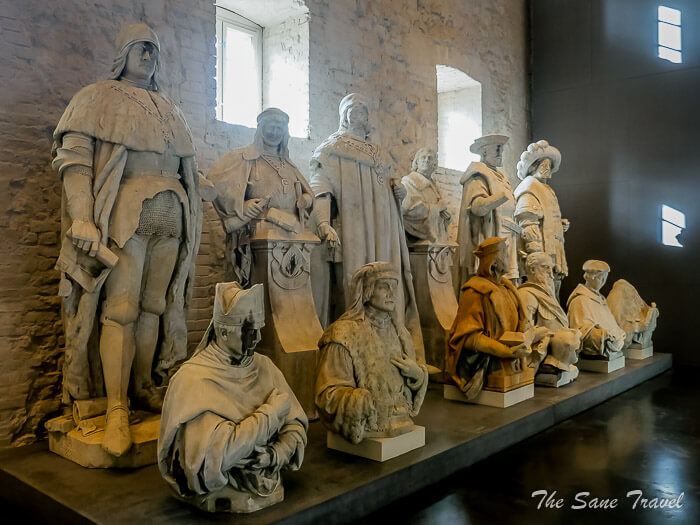
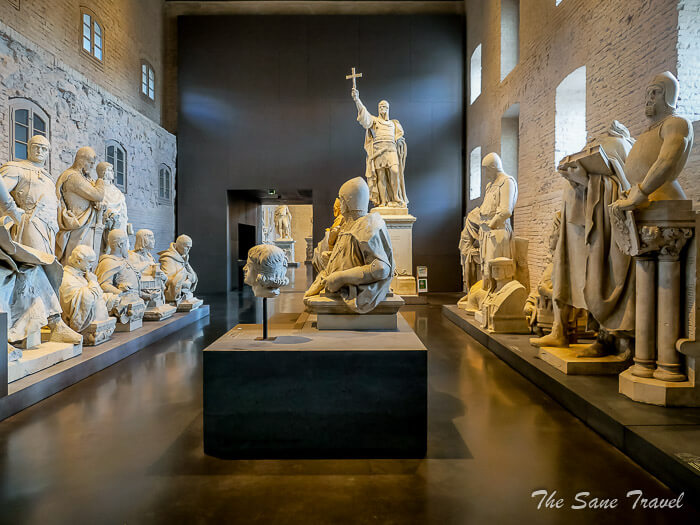
Military history exhibition in Parade Hall
The former Parade Hall houses an exhibition of historic cannons, including the 16th-century ceremonial bombards. The weapons collection is also a reminder that Spandau was considered Prussia’s armoury since the 18th century. 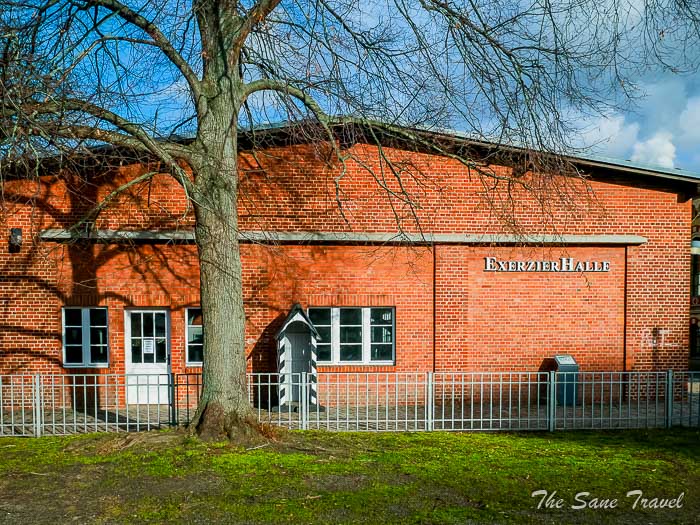
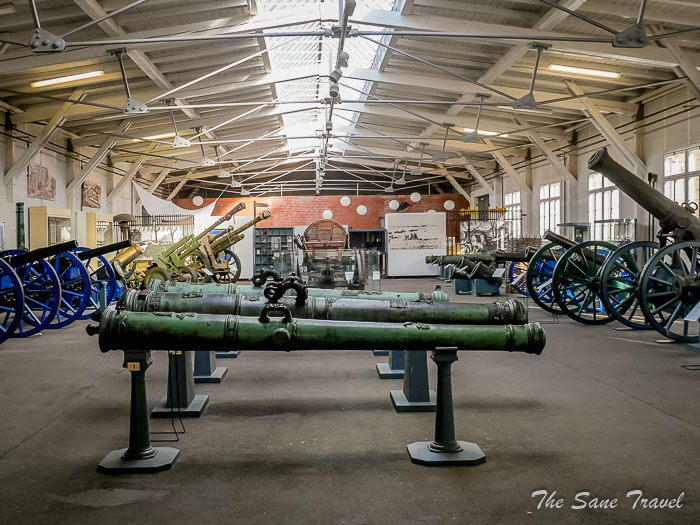
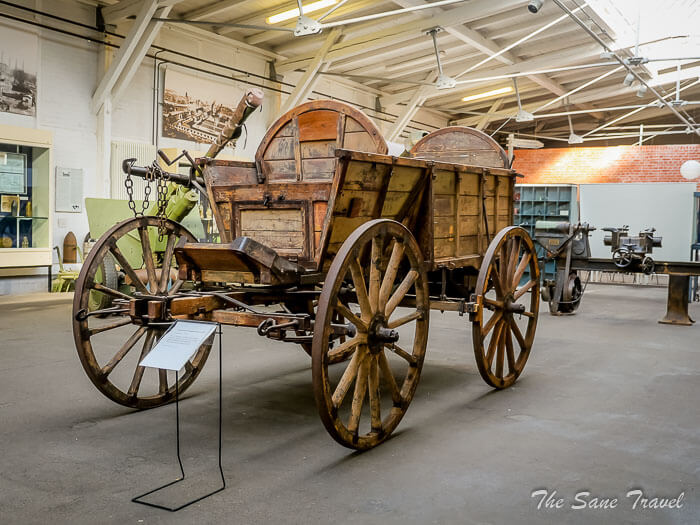 Not far from the citadel, factories for the production of guns, cannons, and gunpowder were located. Up to 70,000 people worked there during the First World War and even more after 1935 when the National Socialist government broke the Treaty of Versailles.
Not far from the citadel, factories for the production of guns, cannons, and gunpowder were located. Up to 70,000 people worked there during the First World War and even more after 1935 when the National Socialist government broke the Treaty of Versailles.
ZAK – Centre for Contemporary Art
The extensively renovated 19th-century Old Barracks have hosted ZAK – Centre for Contemporary Art since 2018. It is an exhibition space for contemporary art and a meeting place for people of all cultures. 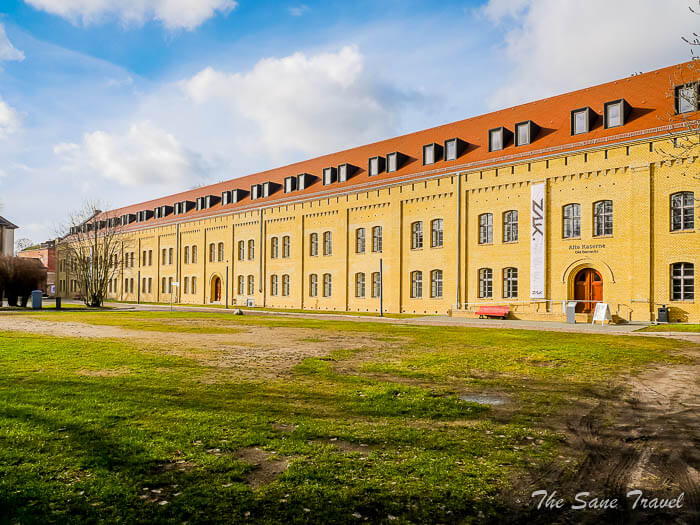
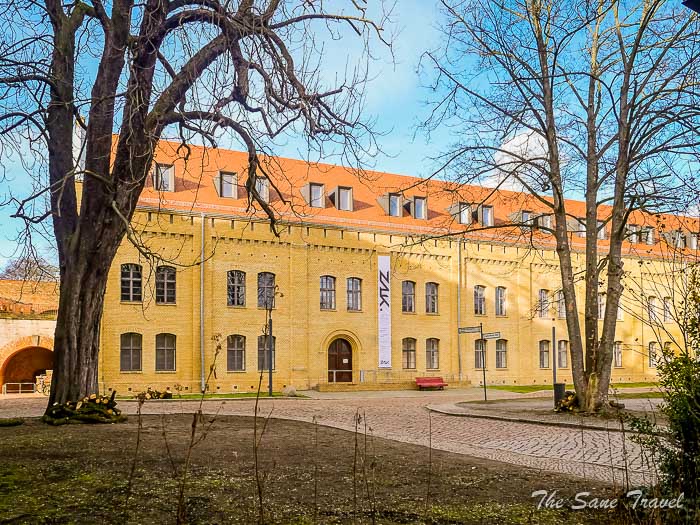
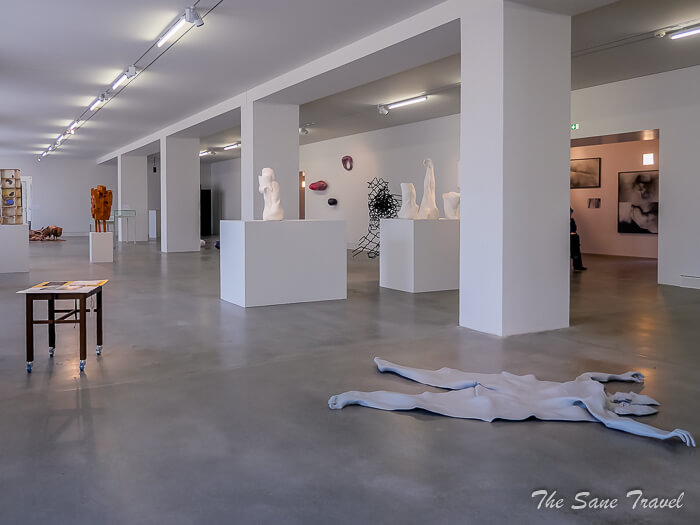 Check out what exhibitions they offer at the time of your visit.
Check out what exhibitions they offer at the time of your visit.
Bat room
The citadel is home to 10,000 bats that come every year to sleep in the citadel vaults in the winter. Visit a darkened bat room where you can see the citadel’s nocturnal inhabitants up close.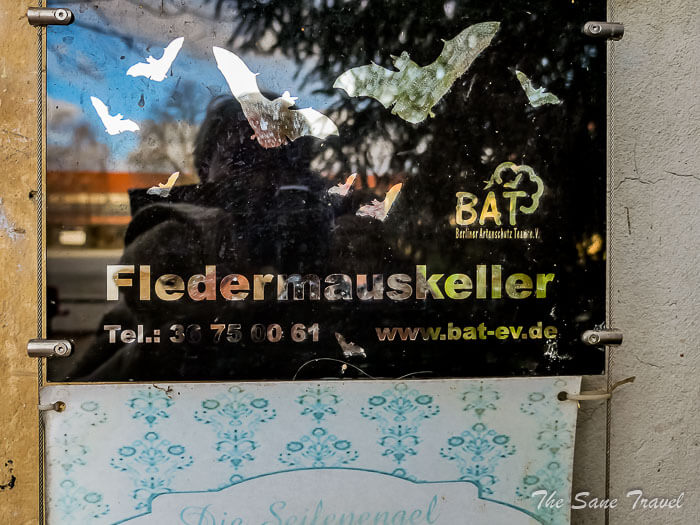
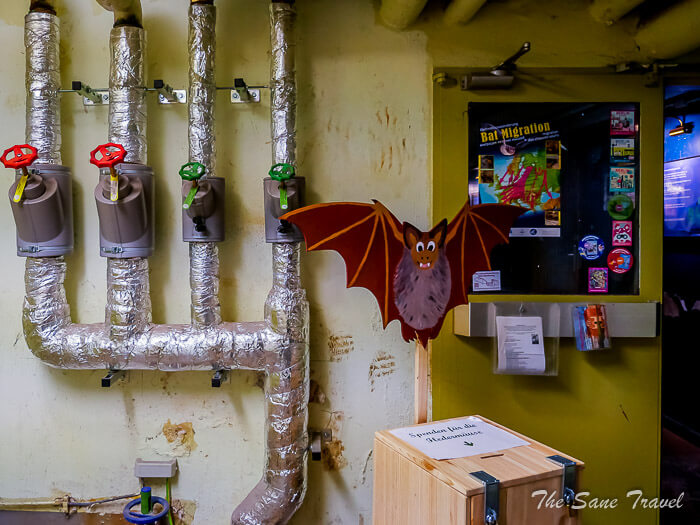
There is much more to explore in the citadel, but now it is time to return to the centre of Spandau. If you have not had one already, have your coffee and cake at Cafe Fester.
Cafe Fester
Before or after your Spandau tour, I recommend you take a break at Cafe Fester. The family business of the Fester confectionery has operated there for almost 100 years.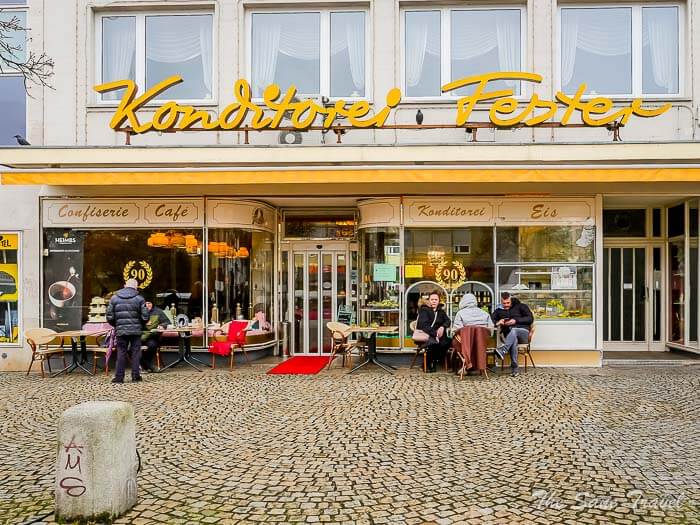
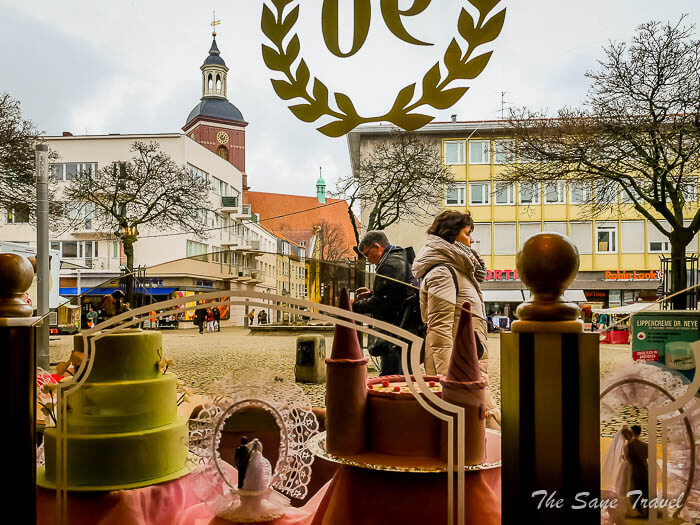
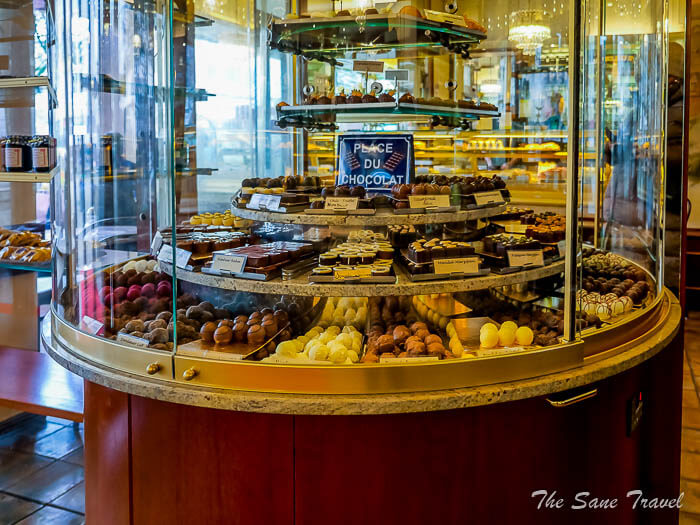
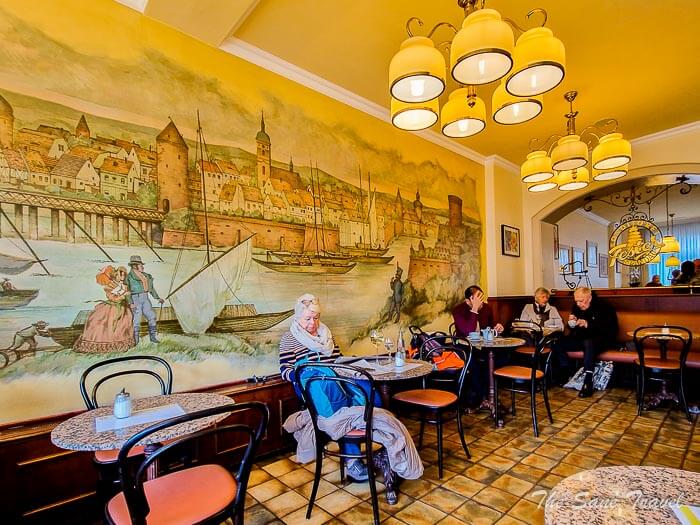 The Berlin bear decorated with cake in the front of the cafe adds to the atmosphere of the place.
The Berlin bear decorated with cake in the front of the cafe adds to the atmosphere of the place. 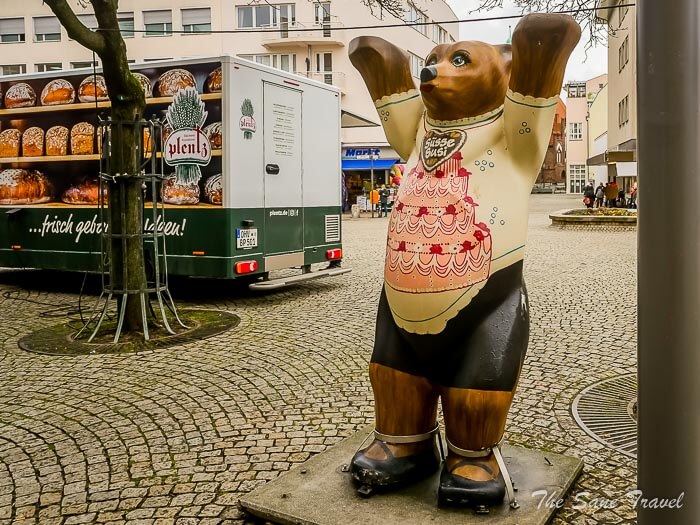 I really enjoyed my coffee and cake there.
I really enjoyed my coffee and cake there.
Practical information
There is a direct train and S-Bahn connection to Spandau from Berlin airport, and it takes an hour or more to get there. Luggage lockers are available at Spandau station, so you can leave your luggage there to feel free during your walk.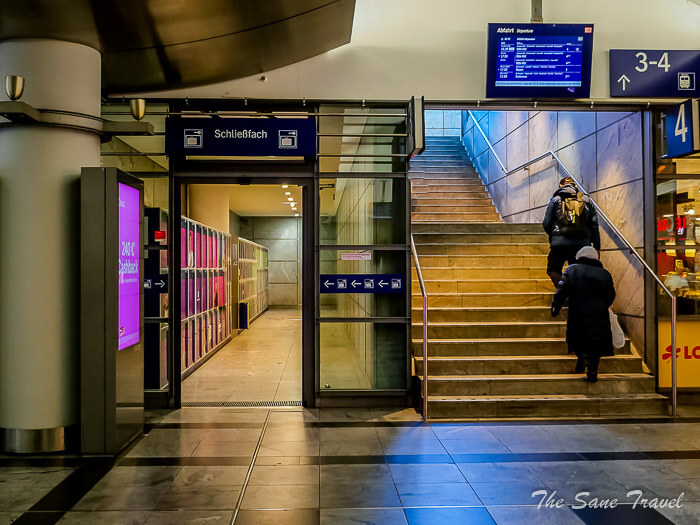 When planning your visit to Spandau, please keep in mind that the museum in the Gothic House is closed on Mondays. If you have more time, you can easily spend a day in Spandau and its surroundings.
When planning your visit to Spandau, please keep in mind that the museum in the Gothic House is closed on Mondays. If you have more time, you can easily spend a day in Spandau and its surroundings.
This map might come in handy during your walk.
Like it? Pin it!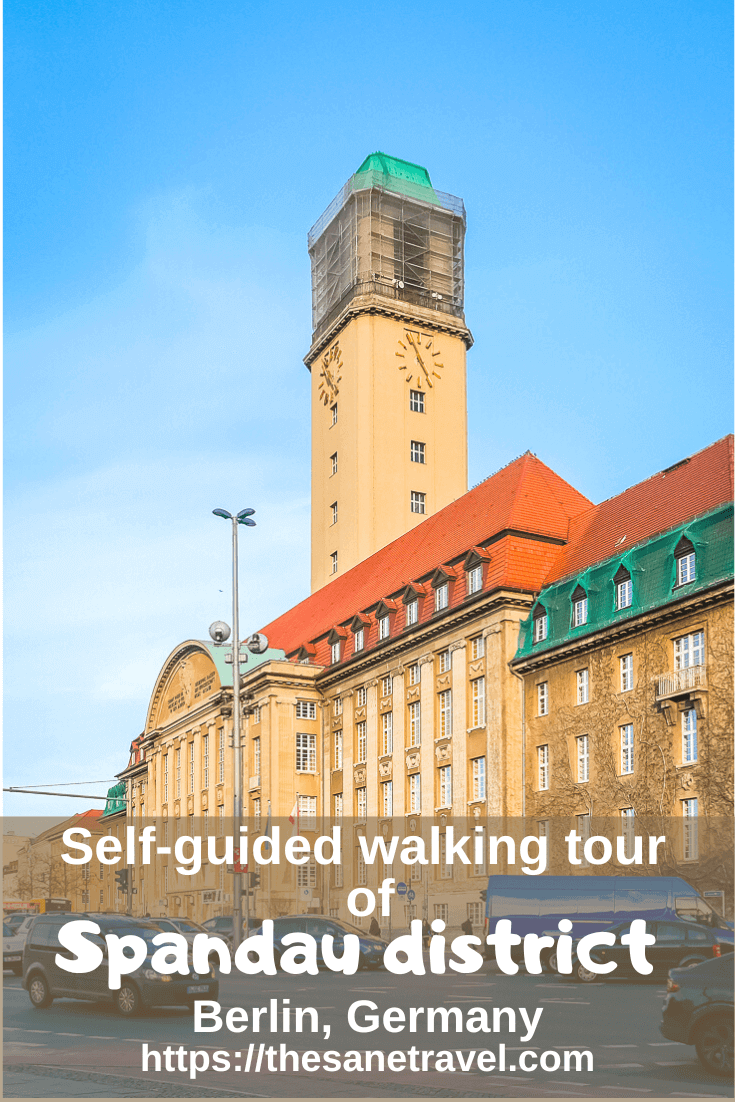
What did you think? Have you visited Berlin? I would love to hear from you, so please add your comment below.
Author: Anita Sane
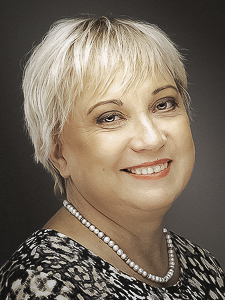
About the author
Anita is a part-time traveller, passionate photographer and a retired career woman from Latvia, travelling mostly solo for more than 15 years. She is a skilled travel planner who plans and executes her travels by herself. Anita wants to show you how to travel the world and open your mind to new experiences. Follow her on Facebook, Instagram, Pinterest, Twitter and Bloglovin.

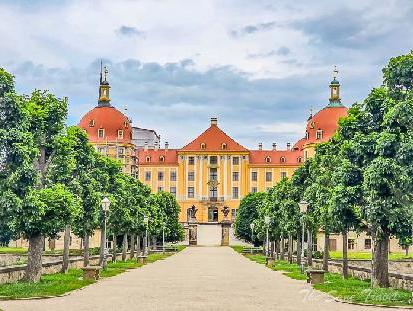
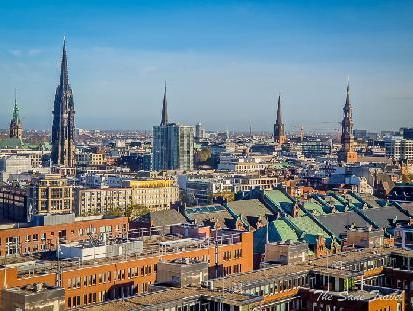
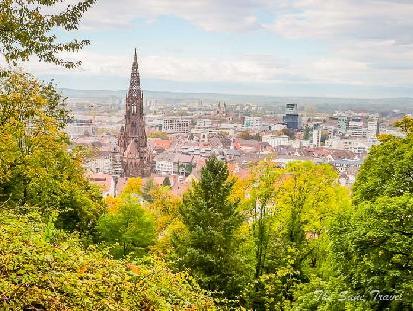
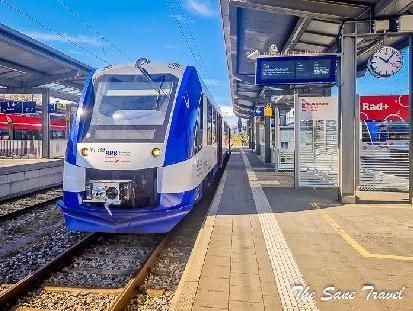
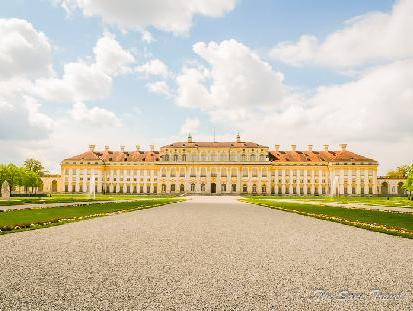
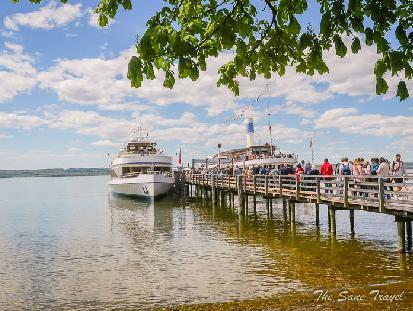
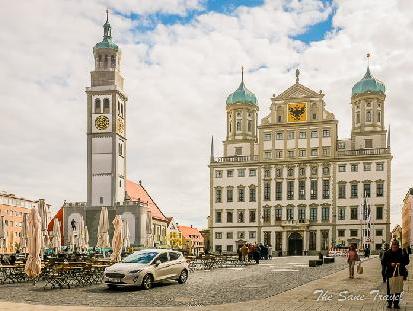
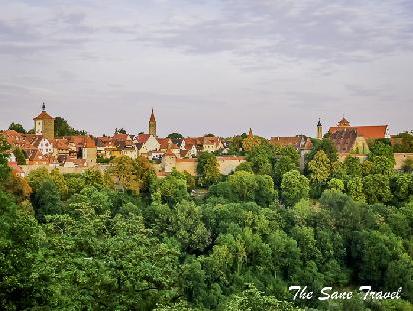
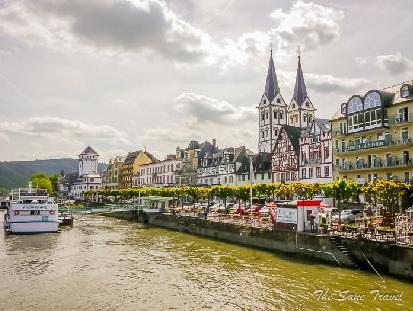
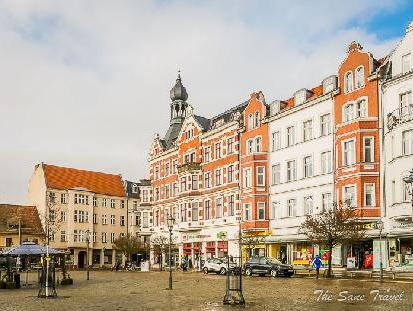
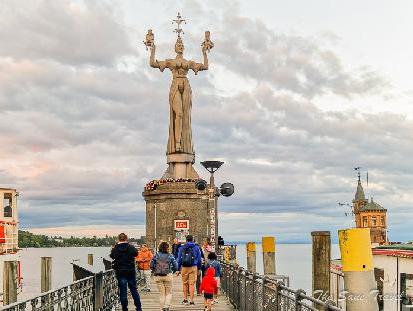
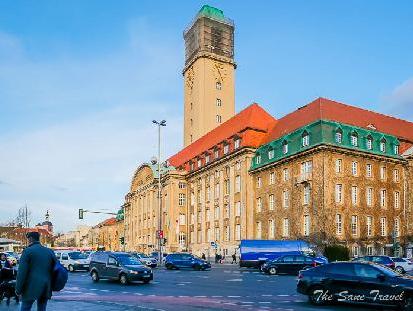

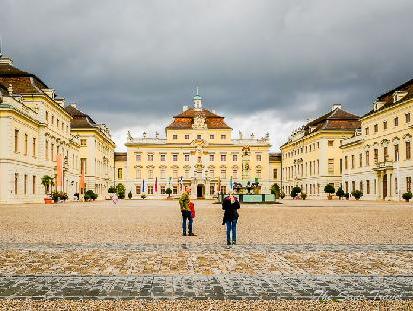
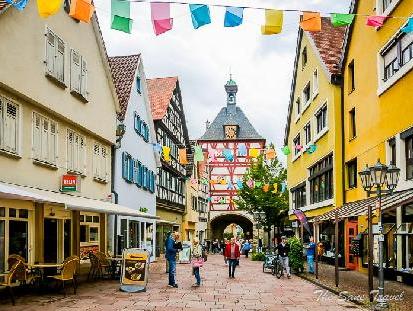
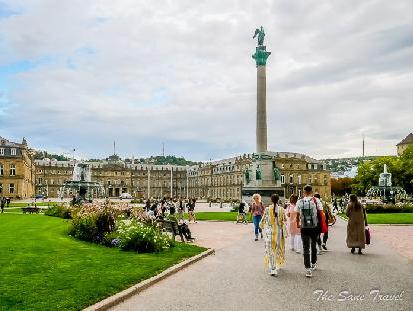
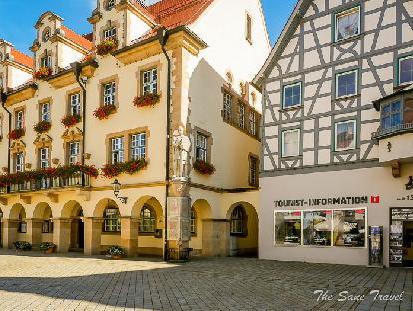
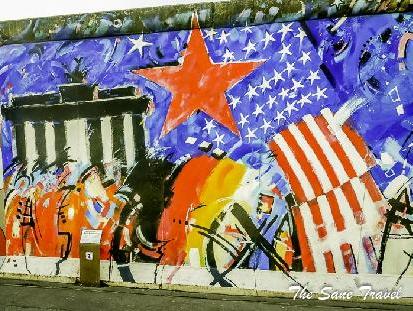
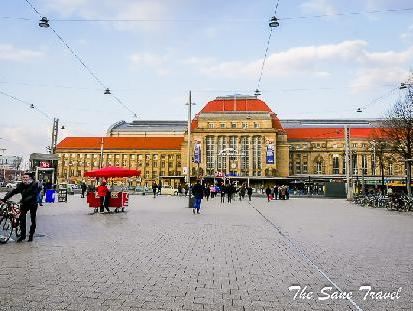
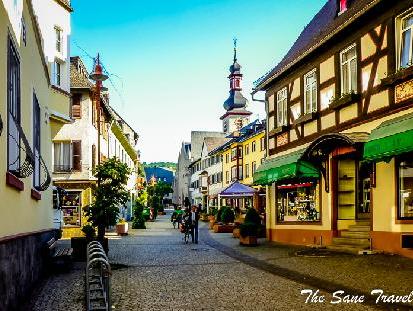
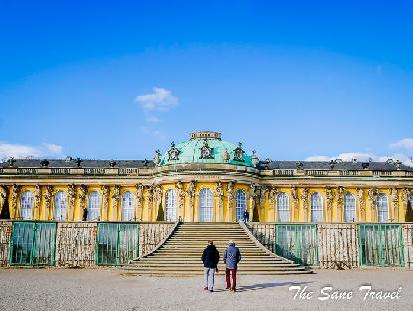
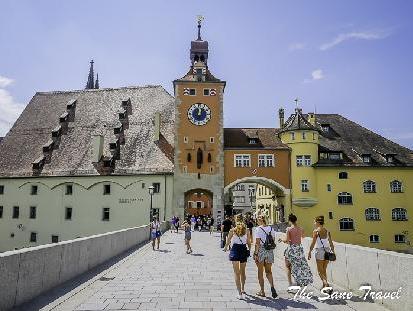
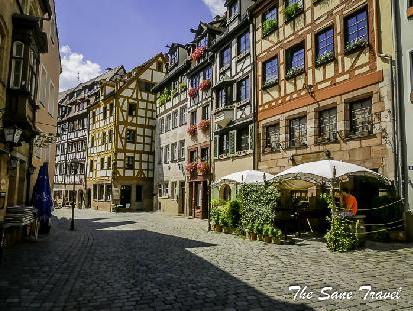
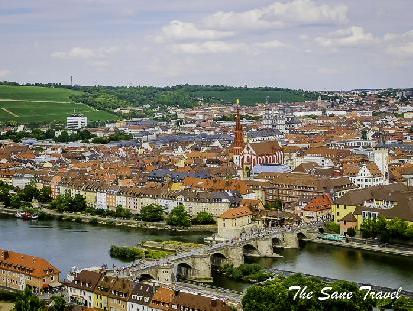
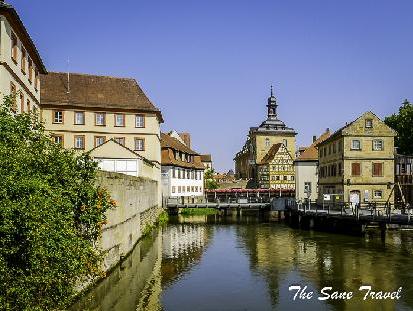
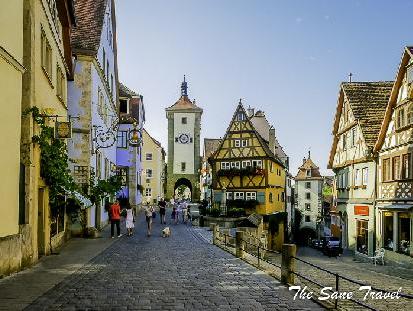
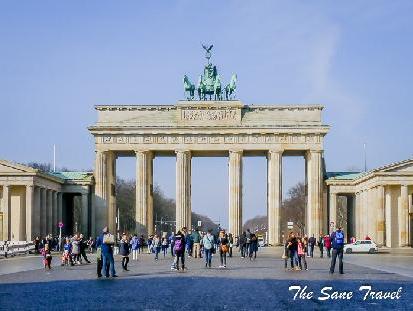
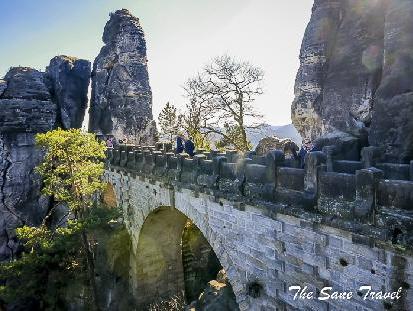
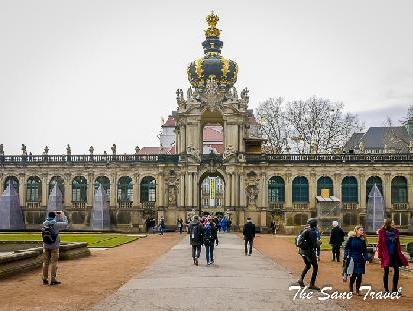
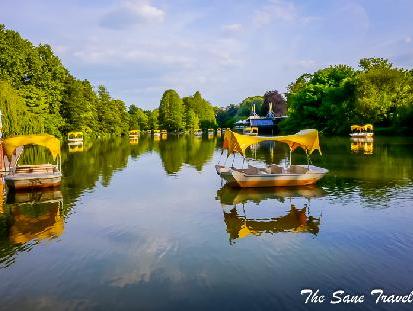
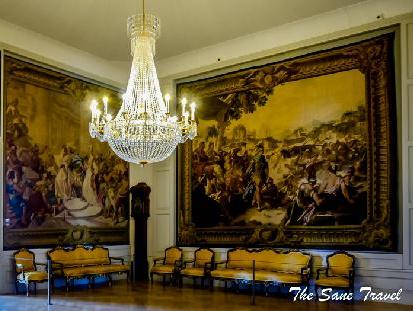
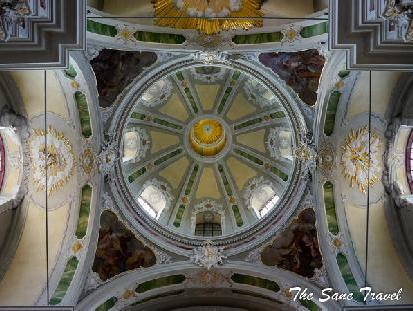
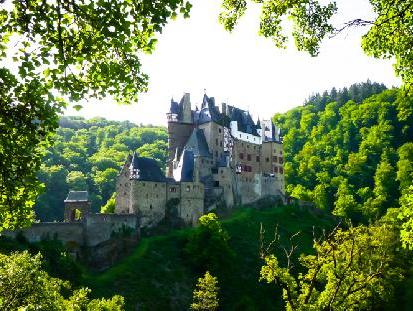
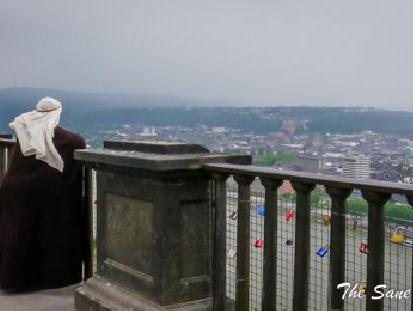
Vielen dank! Arlette
Report
My comments